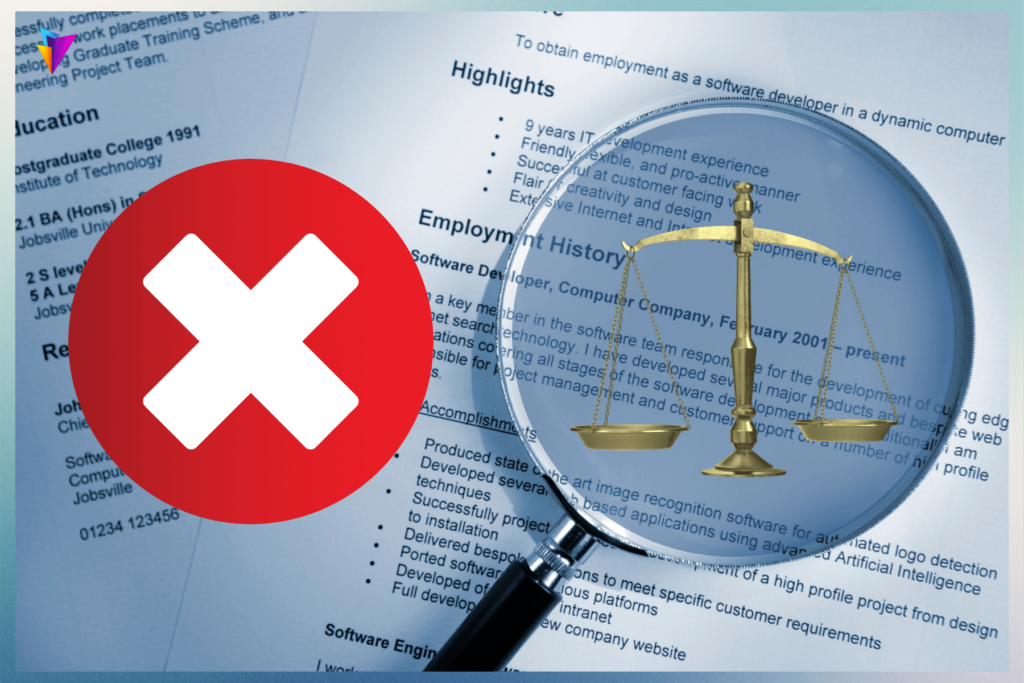Switching careers is an exciting yet challenging journey. Your resume is the key tool to help you successfully make this transition. While it may seem daunting to present your qualifications for an entirely new industry, you already possess valuable transferable skills that can be repurposed to align with your new goals. In this guide, we’ll help you craft a resume that showcases your strengths, skills and positions you as a strong candidate in your new career journey.
Highlighting Transferable Skills on Your Resume
One of the most important aspects of writing a resume for a career change is focusing on transferable skills. These abilities apply across various industries, allowing you to demonstrate that you have the necessary skills to succeed in your new career, even if your job history is unrelated.
Identifying Skills that Apply Across Industries
Transferable skills are nothing but capabilities that can be used in multiple professions, regardless of the field. These include:
- Communication: Strong communication skills are essential in almost every industry, whether you are negotiating with clients, leading a meeting, or collaborating with your team members.
- Project Management: Managing tasks, resources, and deadlines is relevant whether you’re working in construction, marketing, or IT.
- Problem-Solving: Employers value candidates who can analyze situations and come up with solutions, regardless of the industry.
- Leadership: In the job world, leading your team project is invaluable.
Review the job descriptions for the positions you’re targeting when identifying transferable skills. Look for overlaps between your past responsibilities and the skills required in your new field.
How to Present Your Past Experience for a New Career Path?
While your previous experience might not be directly related to your new career, you can still present it in a way that highlights its relevance. Candidates should focus on the skills and accomplishments that align with the requirements of the job you’re applying for.
For example, if you’re transitioning from a retail management role to a project management position in the tech industry, emphasize your experience in managing teams, overseeing projects, meeting deadlines, and optimizing processes.
Instead of focusing on job titles, highlight specific accomplishments, such as:
- Managing a team of 10 employees and improving sales by 15%.
- Leading a project to revamp inventory systems, resulting in a 20% reduction in stock loss.
- Implementing training programs that improved employee performance by 30%.
These achievements demonstrate your ability to handle responsibilities similar to those in your new field, even if the industries differ.
Tailoring Your Resume for a New Industry
Candidates must carefully check their resumes to see if the content fits different roles. This is primarily helpful in making a career change. This allows you to present yourself as the ideal candidate for the specific job rather than someone transitioning from an unrelated industry.
Customizing Your Resume for Different Roles
Customizing your resume involves more than just changing job titles. Here are a few steps to ensure your resume fits each application:
- Review the Job Description: Read the entire job description and check minute details to identify what key experiences and skills are needed for the role. Fresh graduates sometimes need help knowing where to begin, so re-reading the job description makes things easier.
- Update Your Skills Section: Highlight relevant skills that match the job description. Focus on the transferable skills that apply directly to the new role.
- Adjust Your Work Experience: Rewrite your past job descriptions to focus on accomplishments that align with the new job’s requirements. Use action verbs and quantify your achievements wherever possible.
- Include Relevant Education or Training: If you’ve taken any courses or earned certifications related to your new career, ensure these are prominently featured in your resume.
By tailoring your resume to fit each job, you’ll show potential employers that you’ve carefully considered how your background fits their needs.
Writing a Compelling Career Change Summary Statement
The summary statement at the top of your resume is your chance to make a great first impression. For career changers, it’s especially important to use this section to explain your transition and highlight the value you bring to the new field.
Here’s a formula for crafting a solid career change summary:
- Start by Stating Your Goal: Clearly mention the position or industry you’re transitioning into.
- Highlight Your Key Skills: Emphasize your transferable skills and experience relevant to the new role.
- Explain the Career Shift Positively: Use language that shows your enthusiasm for the new field and how your previous experience has prepared you for this role.
Example: “As a seasoned retail manager with over ten years of experience in team leadership, customer service, and process optimization, I am transitioning into project management. My strong organizational and problem-solving skills, along with my track record of leading successful projects, make me a valuable asset in the tech industry.”
FAQs
How do I write a resume if I’m changing careers?
Focus on highlighting transferable skills, tailor your resume to each specific job, and use a compelling career change summary statement to explain your transition. Emphasize relevant achievements from your previous experience that can apply to your new role.
What are transferable skills and how do I identify them?
Transferable skills are nothing but abilities useful for job seekers to look across different jobs and industries, such as communication, leadership, and problem-solving. You can identify them by reviewing your previous roles and finding skills that align with the requirements of your new career.
Do I need to customize my resume for every job when switching careers?
Yes, customizing your resume (adding relevant experiences and skills) is essential when switching careers. Doing so helps you to align with each job’s specific requirements.
How do I explain my career change in a resume summary?
Use your resume summary to explain your career shift by mentioning your goal, emphasizing your transferable skills, and explaining how your past experience prepares you for your new field.
Can I include unrelated job experience in my resume?
Yes, but focus on how the skills and achievements from that experience are relevant to your new career. Avoid including unrelated details that don’t add value to the job you’re applying for.
Should I focus more on skills or experience when changing careers?
While both are equally important, focus more on transferable skills when changing careers. Your experience should be framed in a way that highlights the skills, talents, and achievements relevant to your new role.
Conclusion
Changing careers is a bold and rewarding move, but it requires a carefully crafted resume to smoothen the transition. We are sure that if you focus on your transferable skills, writing a compelling career change summary and tailoring your resume for each job, you can confidently position yourself as a strong candidate for your new career. With the right resume, your career change can open up exciting new opportunities.
You can also click here to check out our another blog to format resumes.










